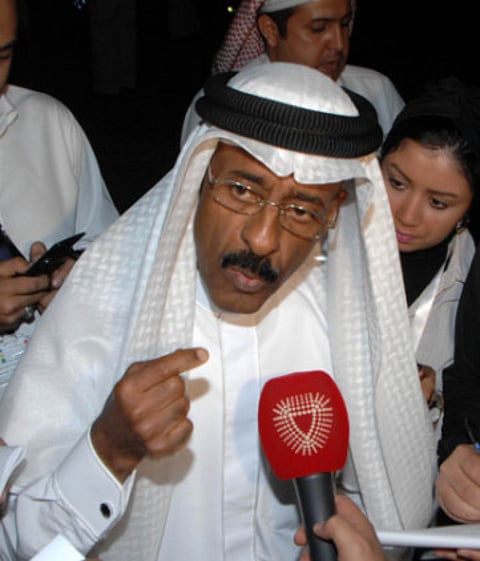Preliminary agenda set for Bahrain national dialogue
Participants agree on major principles to guide the talks

Manama: A preliminary agenda for the national Dialogue in Bahrain has taken shape after participants agreed its major sections and principles.
The accord, reached on Sunday evening 40 days after the launch of the talks on February 10, includes nine sections and 12 principles which will have to be endorsed by the 27 participants after it was drafted by an eight-member working group drawn from the four components – two political coalitions, the parliament and the government - participating in the national dialogue.
The executive, legislative and judicial authority, diversity and national unity, the civil society, the respect and protection of human rights, the fight against all forms of corruption, the enforcement of social equality, political societies and security and violence and terrorism are the focus of the sections.
The preliminary agenda was rendered possible thanks to a merger between demands made by the four components.
“There was a common ground that allowed shaping a preliminary agreement,” Majid Al Nuaimi, the education minister and one of the three ministers representing the government at the talks, said following the meeting late on Sunday.
The preliminary agenda will be taken up by the full session on Wednesday when the participants hold their tenth round and could be rejected.
But while forward steps have been taken regarding the preliminary agenda, the proposals by the coalition of five opposition societies on having a representative of the king at the talks, referring the outcome of the dialogue to a referendum and selecting a new team to replace the parliamentarians have been set aside to enable the dialogue to continue.
Majid Milad, on behalf of the coalition of the opposition, said that their demands would not be overlooked.
“We will discuss all pending points at the session on Wednesday because it makes no sense to put them off until the very end,” he said.
The opposition ahead of the session said that it would push for dropping the team of parliamentarians from the talks.
Eight independent members are equally representing the two chambers of the bicameral parliament at the dialogue alongside eight delegates from the alliance of the opposition, eight more delegates from Al Fateh coalition and three ministers from the government.
However, the opposition said that the eight parliamentarians, four women and four men, were not independent.
“There are no independents at the table,” Majid said. “We are tabling four options for our meeting on March 31 and we hope that we will agree on one of them,” he said ahead of the meeting of an action group tasked with paving the way for the wider meetings of all participants.
One option is to have eight independent people selected equally by sides taking part in the talks, he said.
The third and fourth options would be to reduce the number of independent figures to four or to two, equally chosen by the sides taking part in the dialogue.
“Another option is to simply cancel the participation of independent figures and limit the number of interlocutors to eight from either of the two coalitions and representatives from the ruling family,” he said in a statement carried by his society Al Wefaq.
The call for change is likely to be resisted by the other components.
“The opposition tends to consider anyone who does not side with them as against them, and that applies to all people regardless of their status,” Ahmad Juma, the spokesperson for Al Fateh coalition said.
The talks were launched on February 10 in a new bid to heal the wounds that had scarred Bahrain since the events that unfolded in the country in February and March 2011 and eventually sharply divided Bahrainis, often along sectarian lines over their merit.
Sign up for the Daily Briefing
Get the latest news and updates straight to your inbox



